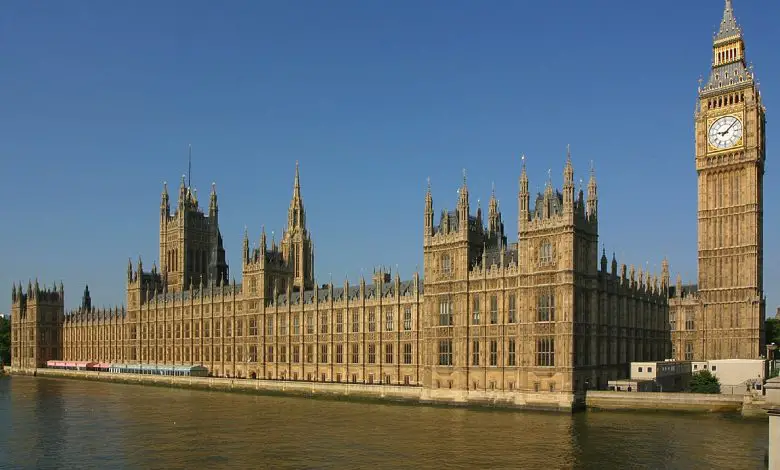
Is disability a political issue?
Next year, in fact in fourteen months time, there will be a general election. In the build-up, the lobbying and posturing, the canvassing and polling, the TV reports and the party manifestos, will disability figure at all?
‘Of course it will!’ I hear the resounding response, ‘just look at the current activity around benefits and disabled people; it must be an election issue.’ Quite rightly, the benefits issues need challenging and the campaigners doing so are to be congratulated and, actually, thanked. But (and this is no criticism) they are campaigning on benefits as they affect disabled people, not on disability per se.
For the sake of clarity, when I write about disabled people I do so within the social model of disability[1]; and by that I mean disabled people are those who have an impairment and who encounter barriers in society that do not take account of that impairment. A simple example often used is the provision of ramps where there were only steps, or Braille menus in a restaurant. Logically, if you’re not experiencing barriers you’re not disabled: this may seem like semantics, like playing with words, but stay with me . . . .
Let’s imagine two disabled people – one is an Asian woman, blind due to diabetes, the other is an English deaf guy with mental health issues: I’ve described (very basically) their impairments, their gender and their ethnic origins, and they may experience barriers – or discrimination – on one or more of all three fronts. Let’s have them going to lobby their local parliamentary candidates two months before the general election, how might this play out? The woman might be asking, for example, why none of the election campaign leaflets are in Braille or large print, or maybe – having come on the tram – why the information at the metro stop is visual but there is no audio? She is asking about disability, not about her impairment. The guy, well to be honest, unless he’s taken a BSL[2] interpreter with him there’s probably no likelihood of meaningful communication: this is a further example of disability in practice.
And this parliamentary candidate, what are the odds that they are themselves a disabled person? And does it matter? Well, 78% of disabled people have said that having more disabled politicians would have a positive effect on the negative attitudes they experience[3], whilst the number of MPs who have declared themselves as disabled is not actually known. Figures on the numbers of disabled people who stand for election – either locally or nationally – are not collected. See Wikipedia however for a list of physically disabled MPs (sic) dating back to 1529![4] The Speakers Conference[5] which reported in 2010 on Parliamentary Representation concluded that ‘many of the barriers for disabled people are physical and practical and among their recommendations was that, at national level, the political parties should publish their campaign literature in a variety of formats.’ As a direct result the ‘Access to Elected Office’[6] fund was launched in order to encourage more disabled people to come forward as prospective parliamentary candidates (PPCs). If you did put yourself forward for selection, let’s assume you’re a wheelchair user, do you think the local party meetings will be accessible or will they be in some upstairs room over a pub? Will asking for access affect your chances of being viewed positively as a candidate?
And how about voting, is your local polling station accessible? Has election material from the local political parties been accessible to you, have their meetings? In short, are they addressing disability? Perhaps, in the run up to next years general election, you can ask them about disability: you could explain to them what it means, because it’s highly likely they will talk to you about impairments, and treatments, and the NHS, and rehab and services, and so on, because these are important issues, of course. But also important is transport, housing, education, employment, independent living, and so on: our inability to access these is down to disability, not impairment.
How can you best inform your prospective MP? What information can you give them? Well, this article (and it’s links) might be a useful start for a discussion on what – if they win the election – their party is planning. Also useful might be the Disabled People’s Manifesto ‘Reclaiming Our Futures’[7], which has been drawn up by a consortium of disabled people’s organisations, is still up for consultation and which does include such matters as education and independent living.
The truth is that disabled people are not very visible in politics, and our issues are not addressed in a way that makes sense to us. Maybe this is part of the reason why the ‘austerity’ programme has targeted disabled people – we’re not seen as politically active and we’re therefore vulnerable, ‘easy pickings’ if you like. So, here’s a thought – why not go to your MPs / prospective MPs surgery and ask them what their party plans for disabled people if they win the election? What it plans to do regarding disability? And let us know what they say!
By Lorraine Gradwell
Check out…
• Making waves: taking the adult respite campaign to Parliament
• ‘Bedroom Tax’ letting disabled people go hungry
• Reasonable adjustments?
Tell us what you think about what’s classed as the minimum standards of living – message us on Facebook, tweet us @DHorizons or leave your comments below.
[2] British Sign Language
[3] http://www.comres.co.uk/poll/696/scope-candidates-with-a-disability-poll.htm
[4] http://en.wikipedia.org/wiki/Records_of_members_of_parliament_of_the_United_Kingdom#Physically_disabled_MPs
[5] http://www.parliament.uk/business/committees/committees-a-z/other-committees/speakers-conference-on-parliamentary-representation/news/report-published-in-accessible-formats/
[7] http://disability-studies.leeds.ac.uk/files/library/UK-Disabled-People-s-Manifesto-Reclaiming-Our-Futures.pdf